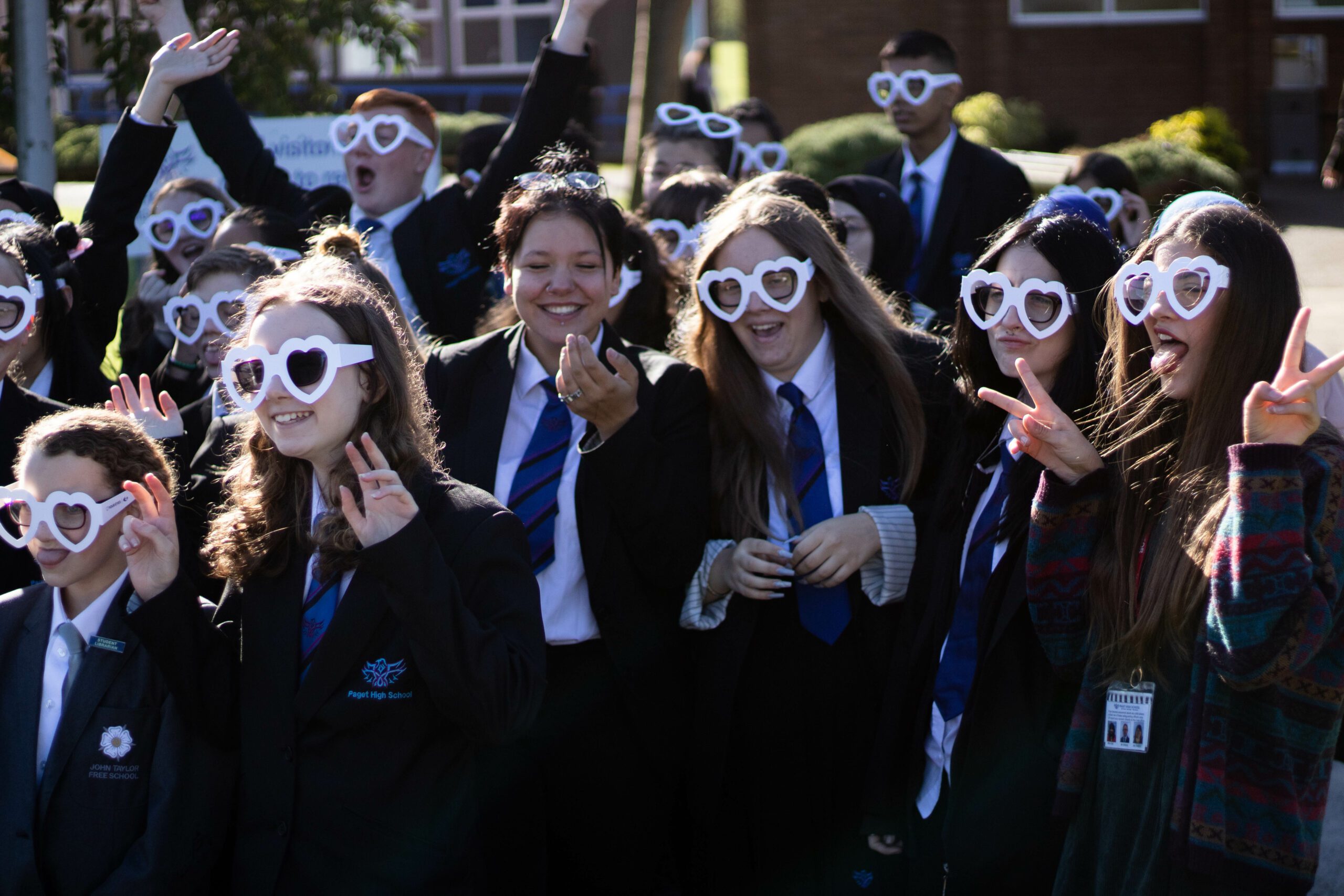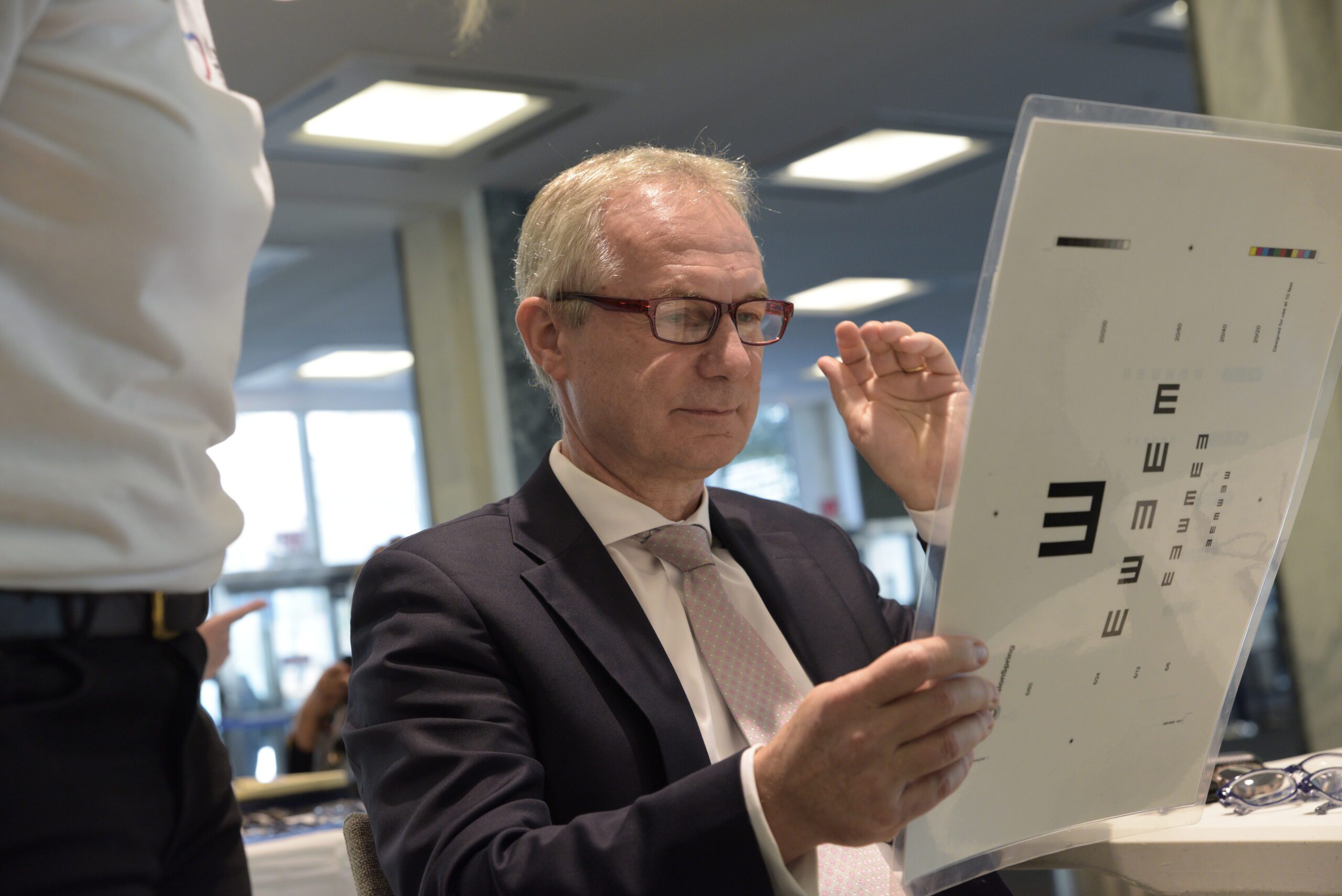Biggest-ever World Sight Day pledge

British school children mark World Sight Day
As the world marks World Sight Day today 13 October, the International Agency for the Prevention of Blindness (IAPB) welcomes the biggest celebration of this important global awareness day with millions participating worldwide.
IAPB, which leads World Sight Day, has recorded over five million sight test pledges from individuals and organisations – a significant uplift in the number of eyes tested.
In the lead-up to the event, international umbrella body for the sight sector asked its members to host vision screenings in parliaments, assemblies and alongside decision makers around the world. A flagship screening event was held at the United Nations (UN) headquarters in New York on 11 October, with UN Ambassadors joining administrators, security staff, catering staff and other UN staff members to get their eyes tested. The UN screening mirrored similar events happening in Australia, Uganda, India, United Arab Emeritus, USA and more.
The IAPB also hosted the first ever Love Your Eyes Voices in New York, bringing together some of the world’s thought leaders, including those from the UN, governments, business and the eye health sector to share inspiration and celebrate the historic UN Resolution on Vision.
Speaking via video to IAPB’s Love Your Eyes Voices event, Amina J. Mohammed, UN deputy general secretary and chair of the UN Sustainable Development Group, said: “This World Sight Day provides us with an opportunity to celebrate progress in the field of eyecare, in global public health and development agendas. Globally more than two billion people are blind or visually impaired, this figure represents the tip of the iceberg, eye conditions are universal and many of us will experience at least one eye condition that requires care.”
She continued: “We must strengthen cross-sector partnership with education, social services, labour, and the private sector to improve eye health for all. Let us work together on World Sight Day, and every day, towards a world where everyone can fulfil their potential and live their lives on an equal basis with others.”

President of the UN General Assembly, Csaba Körösi, has his vision screened at the UN in New York
IAPB has also supported 13-year-old British girl Lowri Moore launch a campaign on World Sight Day tackling the stigma around wearing glasses. Having previously inspired Disney to create a heroine with glasses, she is now challenging tech corporations behind the emojis to create positive emojis with #GlassesOn, rather than depicting glasses wearers as nerds.
She has written a letter stating: “(…) unless we address this, there’s a chance the next generation will grow up believing this lie about themselves”.
Caroline Casey, IAPB president, said: “At a time when global issues seem insurmountable, the huge momentum building around this year’s World Sight Day is evidence that collective action drives change and of the enormous work going on to deliver accessible, available and affordable eye care for all. Ending avoidable sight loss is possible, and it is essential. One billion people being needlessly blind can no longer be tolerated, especially when there is a solution.
“The work that eye health professions do worldwide is building the awareness needed around the vital issue of sight and eyecare including uncorrected refractive error, cataract, glaucoma and diabetic retinopathy. I’d like to acknowledge the entire sight sector for getting behind World Sight Day and urging everyone in the world to do their part in ending avoidable sight loss by being accountable and commuting to love their eyes.
“We have been blown away by the number of people who have got involved this year and pledged their eye tests, including thousands of members of the public, eye health organisations and professionals.”
World Sight Day forms part of the Love Your Eyes campaign, which calls on global leaders, policy makers, changemakers and innovators from all countries, industries, and communities to help make eye health accessible, available, and affordable to everyone by 2030. The campaign also engages the public to consider their own eye health, prioritise caring for their eyes and seek out eye health services.
Visit www.iapb.org